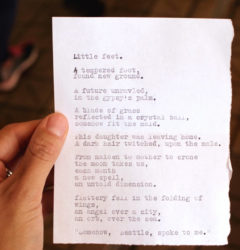04 May

Website writing is now an essential skill if you want to grow your brand and business. So maybe you are asking, “Is this different from the traditional form of writing? Do you have to follow the format of broadsheets and magazines? What styles should I use for the contents I put online?” There is so much to talk about and if you wish to learn more, feel free to start with this article.
What is Online Content?

Let’s have a quick review of what online content is. Well, apparently this is a no brainer. Online content is everything you see on the web. It can be photos, videos, or text which you also refer to as online articles. The last one is what we are going to focus on.
For people who are used to writing in traditional print media, you might think the style should be the same. In reality, there must be a different approach when writing for the web. Experts say that the behavior of an online reader is not the same as those who read hardbound books or broadsheets.
Those who read the broadsheets or actual books have the time to sit down and read for hours. However, people online do not have the same amount of time. Most likely they go online to multi-task. They probably want to check their emails, social media accounts, or if a topic is too interesting – squeeze a little time to quickly read. We should take note of the phrase ‘quickly read’ in terms of online writing.
What happens is that they see an interesting headline or caption, click the link, read the first few lines and see if it worth reading. If you can’t get their attention in the next five seconds, you are done.
So, let’s answer, how do you write for the web?
Do’s and Dont’s of Website Writing

Give Out Information Right Away
Most online readers don’t have the luxury of time to browse long articles. They just want to get the most vital information as soon as possible. For example, they want to read about the features of a car. You don’t write long and winding paragraphs to explain every feature at the beginning of your article. Instead, you list it in a bullet form placed at the top of your online article. And then if you want to write the details, you use the succeeding paragraphs.
Why do you use this technique? It’s because you want to engage readers further. If you lose them after a couple of seconds, they are likely to close your link and go to another source.
Use Your Creativity Wisely
As writers, we usually want to infuse our own style in every article that we publish. We sometimes go as far as using metaphoric phrases to prove our point. Such isn’t bad but you have to be very careful if your aim is to send a clear message to your audience. It’s not that they will not get your metaphors. But again, remember that these people have little time to read, let alone think of what they read.
A technique that works online is to use simple words. You can still be entertaining yet use simple words that most people will understand. It doesn’t have to be profound or highfalutin unless your specific readers crave for that.
Maximize Headings and Subheadings
If you will notice, a lot of online articles use headings and subheadings. These can make your website content more visually appealing. If you must know, your headings serve as the reader’s break. Plus, it’s easier for them to browse and go to the sections they feel are most important.
Avoid Lengthy Sentences and Paragraphs
Seeing huge blocks of texts can be a major turn-off for readers of website content. Again, we are battling with time when we write online. You need to make your sentences short, concise, and easy to read. Otherwise, you will lose traffic.
Don’t Forget the Call To Action
Most articles found online are used to direct readers to another website or a landing page. And that is why you have to include smart call-to-action phrases so that the readers will know what to do next. For example, you just wrote a review about a popular essential oil. You should link it back to a landing page and use call-to-action so that readers will click it.
Writing Styles for Different Websites

As an online writer, you will be tasked to write for different clients having different audiences. And it is important that you know how to wear multiple hats. One day you are writing about graphic design, and then the next you write about technology. Obviously, you can’t use the same tone for all clients.
If you are not used to this, then it can take a lot of time to create even one website content. But if you wish to become a full-time online writer, then you have to read a lot. This should expose you to different styles and how you can change your approach per industry or topic.
Updating Your Website Copy
It is also important that you regularly update your website content. It’s what your readers need, and it’s what search engines want. This means you have to revisit your existing online articles and see if the information is still relevant. Check if the content is still up-to-date. If not, you can always edit it. Here are some practices that you can do as well.
- You can add subheadings
- Edit or add the latest statistics
- Add the most recent and relevant issues related to the central topic
It Takes Time to Master Website Writing
We are not sugar-coating anything. Website writing takes a lot of time to master, and you have to practice. If this is your chosen profession, again, read and write online content every day. However, if you are already running a business and you need website content, the best approach is to work with experts like Content Fuel.
The team can provide quality web content appropriate for your niche and audience. It saves you time and it can definitely earn you more readers.










